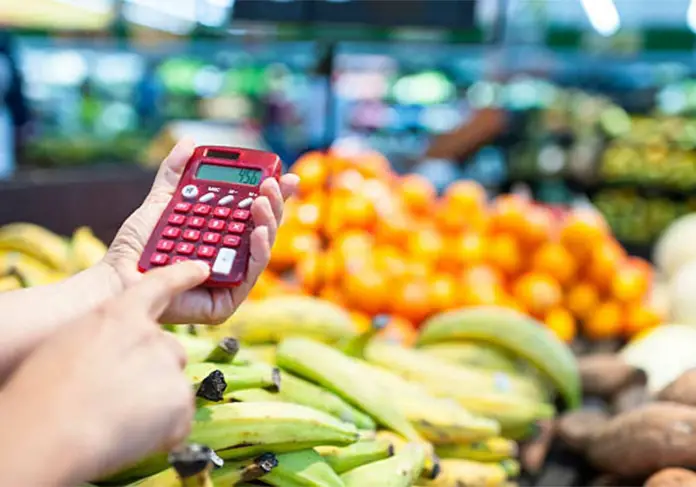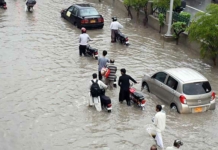Pakistan will not risk creating economic recession for the sake of achieving inflation-adjusted positive interest rate, soothing market’s fears of a further rise in the rate after inflation soared to 25%. We do not have to create economic recession to bring inflation down and real positive interest rate can be achieved in the longer run – Dr. Murtaza Syed, Acting Governor of State Bank of Pakistan in an interview with an English daily.
The global economy was badly affected by the deadly and recurrent waves of the COVID-19 and its various variants. It started showing signs of recovery in financial year 2022 after the global pandemic entered into the phase of endemic. However, with some recent unfavourable international developments in the geopolitical arena, the global economy is again facing a gloomy situation where worldwide, higher-than-expected inflation is forcing policymakers to implement stringent monetary and fiscal policies. One of the main reasons behind it is the ongoing war between Russia and Ukraine.
According to the July 2022 publication of the World Economic Outlook, updated by the International Monitory Fund (IMF), the consumer price index in June 2022 in comparison to the same month of the preceding year rose by 9.1% for the United States and the United Kingdom. This rate of inflation is the highest in these two countries in the last four decades. Similarly, the Euro zone witnessed unexpectedly high inflationary pressure of 8.6% in June 2022 – reported to be the highest level since the inception of European Union (EU). Looking at the main components of euro area inflation, energy was the largest contributor in June 2022 (share was 41.9% as compared to 39.1% in May 2022), followed by food, alcohol and tobacco, that was 8.9%, compared with 7.5% in May 2022. The non-energy industrial goods posted inflation of 4.3% as compared with 4.2% in May 2020.
The same trend is noticed in various emerging markets and most of the developing economies where higher food and energy prices geared up headline inflation. Due to limited resources and buffers in such economies, the long-term inflation estimates are expected to remain at higher levels. These will certainly force government and central banks to keep on withdrawing financial support and subsidies and enhancing policy rates aggressively. Such strong tightening measures have already paved the way for an expected slowdown in global economic growth raising growing concerns about worldwide recession. This explains the primacy that central banks all over the world are placing on containing inflation by raising interest rates and tight monetary policies.
In June 2022, IMF revised its global growth projection downwards to 2.9% in 2023 as compared to 3.2% in 2022. These estimates are lower by 0.4% and 0.7% respectively as compared to earlier projections by IMF in April 2022. The same trend is observed in Pakistan, where after the removal of energy subsidies, both headline and core inflation have increased significantly. The Consumer Price Index increased by 24.9% on a year-on-year (YOY) basis in July 2022 as compared to 21.3% in the previous month and 8.4% in July 2021. The numbers are reported to be highest in the last decade and a half.
Analysis of the recent publication of Pakistan Bureau of Statistics on inflation report in July 2022 provides astonishing details. The YOY increases in few selected commodities relating to “food category” that varied from the corresponding month of the previous year that is July 2021 are as follows:
Pulse Masoor (92.43%), Onions (89.48%), Mustard Oil (81.95%), Vegetable Ghee (74.08%), Cooking Oil (72.56%), Gram whole (67.48%), Chicken (59.09%), Wheat (45.02%), Pulse Gram (43.24%), Vegetables (40.47%), Fruits (39.23%), Besan (37.52%), Pulse Mash (35.68%), Rice (31.22%), Meat (25.97%), Milk (24.75%), Eggs (23.74%), Tea (23.12%) and Beans (22.50%).
The report further records YoY increases in “non-food category” as below:
Motor Fuel (94.42%), Electricity Charges (86.72%), Liquefied Hydrocarbons (45.62%), Stationery (34.81%), Cleaning & Laundering (30.39%), Washing Soap/Detergents/Match Box (24.72%), Motor vehicle Accessories (22.38%), Construction Input Items (19.99%), Plastic Products (19.47%), Footwear (19.36%) and Cotton Cloth (18.15%).
It is pertinent to mention that despite taking strong measures, the State Bank of Pakistan (SBP) expects that inflation is likely to remain high around current levels for most of the months in the current fiscal year and is expected to hover around 18% to 20%. The Acting Governor SBP in a recent interview noted: “Our forecasting is fairly good and during the past three to four years we have remained closer to the average inflation forecast. The 25% inflation in July was in line with the central bank’s expectation”. The Acting Governor further quoted: “Unfortunately, the difficult decision to reverse the fuel price subsidy showed up as ‘extra inflation’. Had prices been increased smoothly instead of keeping those suppressed for four months, the inflation would not have shot up to 25%”.
Further, due to the high value of energy and fuel imports, trading account deficit unexpectedly widened in May and June 2022, reported with an adverse variance of beyond US$ 4 billion. As a result, foreign exchange reserves and the Pak rupee faced burnout which further worsened the inflationary pressure. Stability in the global political arena is expected to pacify global fuel, energy, and food inflation. It is expected to ease inflationary pressures across the globe, especially for emerging economies like Pakistan that has recently taken some strict actions to curtail the outflow of fast depleting foreign exchange reserves that helped to curtail trade deficit to US$ 2.64 billion in July 2022 as compared to US$ 4.96 billion in June 2022, showing a substantial reduction of 46%.
Apart from the government action to manage foreign exchange reserves, Pakistan is positively looking forward to the resumption of IMF’s Extended Fund Facility and financial support from bilateral negotiations with friendly Middle Eastern countries. As soon as these inflows slide in, the pressure on Pak Rupee is expected to decrease. It will certainly help improve foreign exchange reserves. The last few days witnessed Pak Rupee recovery by more than 11% in the open market and trading around one US$=216PKR, as compared to 1US$=245PKR at the close of last week. Apparently, it was due to increased monitoring of foreign exchange operations of exchange companies and banks in view of recent vitality in exchange rate as communicated by SBP through social media platform Twitter. SBP suspended operations of four branches of two exchange companies for violation of its rules and regulations.
The above SBP’s actions were much needed to control speculative transactions. But now this monitoring should be further tightened to bring Pak Rupee at its face value. Moreover, the economic team should also work on undertaking much-delayed structural reforms. Though we have witnessed reduction in current account deficit, however, these measures will negatively impact our economic growth that will lead to unemployment in the country.
Additionally, Pakistan must exploit its untapped resources and control wastage of the existing ones. Mere reliance on foreign financial support will not help to gain financial independence and self-reliance. We have to restructure the entire energy sector by reducing circular debt of both electricity and gas by expediting implementation of measures agreed with the IMF in February 2022. We can sufficiently reduce the circular debt by giving relief on installation of solar power system for household consumption as well as businesses. Further, we need to restructure our loss making state owned enterprises to reduce the government’s footprints. All these measures will eventually help Pakistan enforce fiscal discipline and reduce reliance on internal and external borrowing.
_______________________________________________________________
Dr. Ikramul Haq, Advocate Supreme Court, specialises in constitutional, corporate, media, ML/CFT related laws, IT, intellectual property, arbitration and international tax laws. He is country editor and correspondent of International Bureau of Fiscal Documentation (IBFD) and member of International Fiscal Association (IFA). He is Visiting Faculty at Lahore University of Management Sciences (LUMS) and member Advisory Board and Visiting Senior Fellow of Pakistan Institute of Development Economics (PIDE).
Abdul Rauf Shakoori, Advocate High Court, is a subject-matter expert on AML-CFT, Compliance, Cyber Crime and Risk Management. He has been providing AML-CFT advisory and training services to financial institutions (banks, DNFBPs, Investment companies, Money Service Businesses, insurance companies and securities), government institutions including law enforcement agencies located in North America (USA & CANADA), Middle East and Pakistan. His areas of expertise include legal, strategic planning, cross border transactions including but not limited to joint ventures (JVs), mergers & acquisitions (M&A), takeovers, privatizations, overseas expansions, USA Patriot Act, Banking Secrecy Act, Office of Foreign Assets Control (OFAC).
The recent publication, coauthored by these writers with Huzaima Bukhari, is:
Pakistan Tackling FATF: Challenges & Solutions







